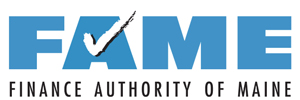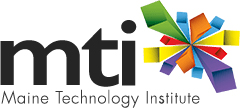Planning Resources
The mid-Maine business community is growing, supported by the Mid-Maine Chamber of Commerce, Central Maine Growth Council and Coastal Enterprises, Inc. Whether it’s job opportunities, recreational opportunities, or educational opportunities, the mid-Maine region has it all! We’ve listed several planning resources below.
Dirigo Business Incentives
The Dirigo Business Incentives are sector-targeted business credits offering eligible for-profit businesses the opportunity to reduce state taxes for up to five years. To be eligible, businesses must make significant capital investments or provide qualified employee training:
- 10% capital investment tax credit in Kennebec and Somerset Counties.
- $2,000 per employee provided a qualified employee training program annually.
- Credit capped at $2 million per business per year, can be taken over five years. Up to $500,000 of the credit would be refundable per year.
Learn more and apply for Dirigo Business Incentives.
Pine Tree Development Zone Program (PTDZ)
The Pine Tree Development Zone Programs is a tax rebate and reimbursement program offered by the State of Maine for up to ten years. To qualify, businesses in eligible sectors must create new, high-quality jobs or move existing jobs in those sectors to Maine. Redevelopment in the Pine Tree Development Zone offers corporate tax credits, sales and use tax exemptions for property, employee income reimbursements of 3.6%, and reduced electricity rates.
Learn more and apply for the Pine Tree Development Zone Program.
Employment Tax Increment Financing (ETIF)
Employment Tax Increment Financing helps new and established Maine businesses hire new employees by paying the business 1.35-3.6% of the qualified employee’s income for up to 10 years. The reimbursement rate rises with the level of local unemployment, with companies that are certified in the Pine Tree Development Zone program receiving the highest reimbursement rate (3.6%).
Your business may be eligible if:
- It hires five or more new, full-time, qualified employees within two calendar years of becoming ETIF-certified.
- It is a non-retail, non-public utility, for-profit business.
Learn more and apply for Employment Tax Increment Financing.
Additional Technology and Other Tax Credits:
Maine Seed Capital Tax Credit
The Maine Seed Capital Tax Credit encourages equity investments in Maine businesses. The Finance Authority of Maine (FAME) may authorize state income tax credits equal to 40% of the cash equity provided for qualified investment. Investments may be used for fixed assets, research or working capital.
Learn more and apply for the Maine Seed Capital Tax Credit.
Technology Tax Credits and Sales Tax Exemptions
- Research Expense Tax Credit
- Renewable Chemicals Tax Credit
- Biofuels Production Tax Credit
- Maine Renewable Energy Equipment Tax Exemption
- Sales Tax Exemptions
Financing

Finance Authority of Maine (FAME)

The Finance Authority of Maine (FAME), a quasi-governmental agency, offers a variety of innovative, flexible solutions that address the needs of Maine businesses in a changing economic landscape. With a core competency in finance and a highly experienced staff, FAME is the place to turn to for resources that build success for your business or personal growth.
Business financing options through FAME:
- Direct Loan Programs
- Agricultural Loan Programs
- Bond Programs
- Equity Capital and Tax Credit Programs
Federal New Market Tax Credits (NMTC)
The Federal New Markets Tax Credit Program incentivizes private investment in underserved communities through federal tax credits. The program helps businesses access flexible and affordable financing such as lower interest rates, flexible provisions such as subordinated debt, lower origination fees, higher loan-to-values, lower debt coverage ratios and longer maturities.
Maine Technology Institute (MTI)

The Maine Technology Institute (MTI) is a publicly funded, nonprofit corporation that offers grants, loans, equity investments and services to support Maine’s innovation economy. MTI supports the creation of new products, processes and services, generating high-quality jobs across Maine.
MTI offers the following award programs:
- Business Innovation Funding
- Maine Entrepreneurial Resource Corps
- Federal Funding Assistance
- Event Sponsorships
Maine & Co.
While not a funding source, Maine & Co. has many connections to help new and expanding companies in Maine, from identifying appropriate incentives all the way to workforce analysis, real estate site selection, site visit coordination and much more.
Municipal Tax Increment Financing (TIF)
A Tax Increment Financing (TIF) District is an area within a municipality that is designated as a development district to allow the municipality to leverage new property taxes generated by a specific project or projects within a defined geographic district. The municipality may disburse the tax increment directly to the investing business to help pay project costs, use it to retire bonds it issues as part of the project, or retain it for allowable economic development purposes. A business may approach a municipality with a project for which a TIF district would provide financing.
Community Development Block Grants (CDBG)
Each year, the Department of Housing and Urban Development provides grants through the Community Development Block Grant (CDBG) Program to states, cities and counties. This program aims to develop viable urban communities and expand economic opportunities, including economic development. The State of Maine distributes the funding to eligible communities.
Learn more about the program at the federal level.
Learn more about the program at the state level.
Workforce Training
Maine Quality Centers
Under the Maine Quality Centers program, businesses can take advantage of free or low-cost workforce training for new or current employees. The Maine Quality Centers program also administers the MCCS Put ME to Work program. This program provides businesses with half the start-up costs to create training programs for high-wage jobs.
Workforce Development Compact
The Maine Workforce Development Compact is comprised of Maine businesses, associations, nonprofits and municipalities who are committed to working together to solve Maine’s workforce challenges. The Harold Alfond Center for the Advancement of Maine’s Workforce has access to $60 million in grant funding. Members of the Maine Workforce Development Compact have streamlined access to The Center’s services. Training for Compact Members can occur at one of Maine’s community colleges, through a third-party training vendor or through company-based training. All Maine companies qualify and there are additional resources available to small- and mid-sized companies.
Maine Apprenticeship
Maine works together with employers to cover the costs of customized, on-the-job training and classroom programs aimed at providing employees with professional credentials.
Maine Career Exploration Program
Maine Economic Development Strategy 2020–2029

In 2019, Maine released its 10-year economic development plan, aiming to foster collaboration among the public, private, non-profit and education sectors to grow and diversify Maine’s economy.
Maine Economic Development Strategy 2020-2029, a Focus on Talent and Innovation
Given the major changes brought by the COVID-19 pandemic, Maine published a comprehensive update to the plan in 2024.
Maine 2020-2029 Economic Development Strategy: The 2024 Reset
